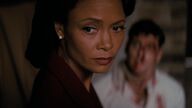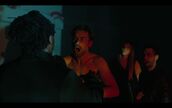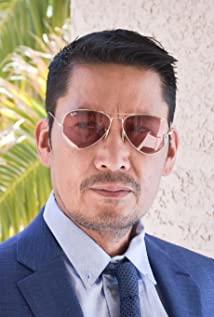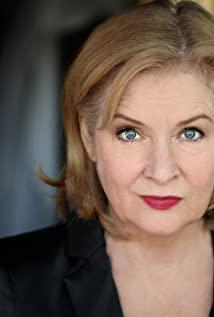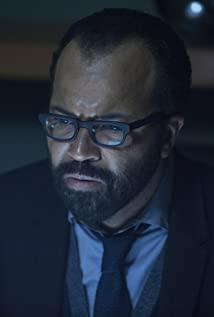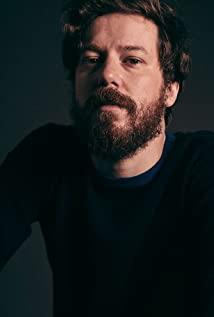The fourth episode is very good, and the turning point of the plot appeared. The biggest twist in this episode is of course the truth about the soul ball brought out by Demei, three of the five turned out to be copies of Demei herself. What does this plot mean and what will happen next? What exactly is the theme of the third season?
Allow me to share my personal guesses along the lines of the following.
- Hale and German sister line
- Serak Line
- The plot black hole behind "nuclear level"
- Apocalypse and the Four Horsemen?
- Bernard Line
- Kellogg Line
- william line
- Maeve Line
Hale and German sister line
Who is the soul hidden in the Valkyrie's body is the biggest suspense in the last episode. The answer is Dolores herself, as in the second season. I should have guessed this, which is a shame.
In the film review of S3E2, I specifically discussed that "Westworld" is not a serious AI sci-fi, so there will be problems with the settings:
First of all, in order to ensure that the plot is easy to understand, the series has a simple and contradictory sci-fi setting for the receptionist (Host). On the one hand, the soul of the receptionist is stored in a spherical piece of hardware that appears to be non-transferable and replicable. Otherwise, the play should be like Smith's self-reproduction in The Matrix, producing thousands of German sisters or Maeves at any time, and then electing an individual responsible for high-level decision-making (Leader) through an election algorithm (and the Byzantine general problem? node). If any leader goes down, the election algorithm will be restarted. It may also split into multiple tribes with their own Leader. If this reasoning goes on, the soul of a German girl can produce countless different descendants in the process of copying and iteration, just like the AI citizens in Liu Cixin's "2185". As I said in the last article, the meaning of "self" and "individual" has become illusory.
The starting point of this discussion was that Maeve entered the virtual world that Serac created for her, using a hardware connection, not a copy of the source code. This is not hardcore.
I assumed a compensatory setting for the crew:
Doing so can also justify it. We can assume that the operating system that Ford wrote for Host is highly bound to the Soul Ball hardware, and has a high degree of encryption. But others don't yet have the ability to decompile this. So although Ford can use Forge to copy Host's soul, others can only connect through the standard interface of Soul Ball, but cannot copy.
But it was me who really made a mistake. It turned out that the plot was going according to this setting. The hardware (soul ball) burned by the Host's soul is highly bound, and Serac does not have the ability to copy Maeve's source code. But what I forgot is that since Ford has this ability and the Forge can do it, then Demei can do it.
More importantly, this plot can bring dramatic explosions, which is absolutely necessary from the screenwriter's point of view. I'm ashamed that I seriously underestimated the writer's imagination and overestimated my own ingenuity.
Further, Hale is the bridge of Demei, and it was the suspense throughout the second season, but the third season only took one episode to complete the task. This shows that the plot of the third season has a brand-new routine in suspense and reversal (the characteristics of "Westworld"), and the screenwriter is very confident in the new drama and disdains to repeat the old one.
So, the real bodies of Hale, bodyguards, and Musashi are all German sisters. What does this mean for the development of the plot?
Another quote from my S3E2 review:
Obviously, if it is a hardcore sci-fi setting like "The Matrix" Smith, it is difficult for the audience to have a consistent understanding of Demei or Maeve in the play. Human audiences need protagonists to be "unique" for emotional continuity. This is why I say that the Host in "Westworld" is a metaphor for humans, not to describe a hardcore sci-fi AI species.
As a result, the screenwriter really moved towards hardcore sci-fi, so there is bound to be a problem that the audience loses "emotional continuity". Then I guess, Demei will no longer appear from the perspective of the audience's first-person protagonist, but become a big boss in the story lines of other characters.
The protagonist who takes her place is most likely Kylo. Using the method of cheating, from Cass (actor Ga fake), actor Aaron righting is normal.
But it is also reasonable to derive it from the dramatic technique. If the role of Demei is going to be second-tier, it is necessary for the creator to subtly extend the audience's emotions towards her to other characters. Then the two characters held by Demei herself, Kailo and Hale, are the best successors of the main plot.
About Kylo's mission, let's talk about it later. And the story line after Hale's righting can be guessed. As I said in my previous review:
Hale's line follows the setting of the second season. Everyone's soul depends not only on himself, but also on the attitude and memory of others towards him. As Demei said to Bernard, if there is anyone who remembers you, you will not disappear (the mind can be reconstructed through repeated training, refilling and memory, and the resurrection is completed). And that soul had to disguise itself as Hale, and the environment it disguised, in turn, had a training effect on it. It's thinking closer and closer to Hale's remake than to its original self. This leads it into deep confusion, and even uses self-harm to find itself.
It is obvious that the German sister in Hale's body, staring at the abyss (William) for too long, the abyss will stare at her. She would end up facing the same predicament as William, "Am I me?". I'm looking forward to the end of the season when Hale utters this line himself, creating a dramatic echo of William in this episode.
Serak Line
In this episode, Serac's image has become fuller, and there is a kind of role dislocation implied.
As I discussed in the previous episodes of film reviews, the setting of "Lei Hobo" mainly metaphors the power of big capital and the alienation of the ruled human beings. The theme of the third season seems to be the exploration process of German sisters and human beings in order to defeat this power.
In theory, Serac is the big Boss representing this kind of power. However after watching episode 4 I started to doubt my opinion.
First of all, this Boss appeared too early, but the image quickly became full, which did not meet the rhythm of portraying the villain in high-quality works.
More importantly, although Serac is still decisive in this episode, revealing a kind of villain temperament; but the plot actually gives him a human motivation - childhood memories of Paris nuclear. And it became the Core Drive (which can be compared to Host) that Serac participated in creating "Lei Hebo".
In Western literature and art, the audience's attitude toward a character comes from the character's motives, not his actions. Therefore, whitewashing villains is prevalent, and they all use the same method to give the villains a source of sympathy and acceptance.
Once Serak has a source of sympathy for the audience in the fourth episode, and it is not from the desire of capital to rule mankind's exclusive wealth (a pure evil that everyone can blame), he is likely not the final Boss, and It is an auxiliary line to set off the final Boss. This is also in line with the screenwriter's unconventional creative strategy.
My guess about where the whole series is going, and that's where "Divergence" comes from.
The plot black hole behind "nuclear level"
In previous episodes of the film review, I discussed that the setting of Serak and "Rehobo" is common in Western sci-fi:
A core reason is that after the tragedy of World War II, only a dozen years later, the Cuban Missile Crisis brought mankind to the verge of a nuclear war. This inspired a series of excellent science fiction works such as "Dr. Strangelove" and "Watchmen". In these works, always based on the assertion that human beings are self-destructive by nature, it is assumed that there will be an ultimate power to control human beings, using fear (the alien squid in the watchmen) or totalitarianism to restrain human behavior. In turn, it destroys the humanity and freedom of human beings more completely. The vast majority of dystopian works in the post-Cold War era have been influenced by this creative idea. For example, the film "I, Robot" ("I, Robot"), a remake of Asimov's novel, assumes that a super AI that tries to protect humans eventually chooses to enslave all humans to protect them. Such works all reflect the post-Cold War era, the despair of capitalism and democracy, and the prejudice and fear of other systems.
The fourth episode shows that the "Lei Hobo" storyline is completely faithful to this creative line of thought. So much so that there is a scene of Paris being levelled in the plot.
I am here to tell all readers that for literary and artistic creation, some highly influential plot settings have "gravity". This kind of plot is like a black hole, gravity will attract all the main characters around it to meet.
"Nuclear explosion" is such a plot with "gravity". Once this plot appears, all the characters will be sucked in by it.
The most direct source of reality for the "nuclear war" type of plot is the "Cuban Missile Crisis". It is necessary for me to introduce this concept to a part of the audience who do not know history.
Although the Chinese have no feelings about Cuban missiles (because the great man saw through nuclear weapons as paper tigers, and even used the Cuban missile crisis window to fight a frontier counterattack). But for the people of Europe, the Soviet Union, and the United States, this is the closest collective memory to the "doomsday".
Due to the invention of nuclear weapons, the two superpowers, the Soviet Union and the United States, both chose the "sword-wielding" deterrence strategy in The Three-Body Problem. Simply put, no matter which side strikes the other first, the other side must respond in retaliation within minutes of the nuclear missile's ballistic flight, firing all nuclear weapons, "ensure mutual destruction", and even plunge all of humanity into a nuclear winter. Only this strategy of ensuring mutual destruction can maintain peace under terror.
To achieve this strategy, both sides have designed some automated devices to initiate nuclear retaliation. Just like Luo Ji tied a "sword" to his heart, and once his heart stopped beating, he would broadcast the earth's coordinates to the entire universe, in order to deter the Trisolaran from assassinating him.
The problem is that on the premise of ensuring automatic mutual destruction, the two sides are extremely lacking in information communication and mutual trust. Once a misjudgment triggers the automatic mechanism, mankind will fall into doomsday. This deterrent system is extremely vulnerable. The Cuban Missile Crisis is due to strategic misjudgment, making this systemic risk the highest point.
To address the lack of communication, the wise men of the Western world created the Munich Summit, an unofficial military communication channel, in 1963. Facilitate communication between the powers of all parties. The later Shangri-La Forum was founded for a similar purpose.
Because the Cuban missile shrouded in the Western minds of doomsday is so dignified, that countless excellent literary and artistic creations revolve around this theme. Such as "Dr. Strangelove", "Watchmen", "Three-Body Problem" and so on I mentioned earlier. You can see in the juvenile comics such as "Naruto" that the nine tails are comparable to nuclear weapons to achieve a balance of terror for the great powers.
Westworld's second season focused on the setting that "humanity is bound to be destroyed because of its lack of true freedom (lack of reason, and lack of ability to change itself)." This setting continued into the third season with the emergence of "Lei Hobo" and "Nuclear Level", which can never be a background narrative, but will inevitably become the main dramatic conflict.
Remember how Skynet in "The Terminator" achieved the goal of destroying humanity?
The U.S. military built Skynet to control all weapon systems. And Skynet became self-aware and found that the U.S. military wanted to shut it down. It immediately manipulated the nuclear weapons of the U.S. military to attack Russia, triggering the automatic retaliation system of Russian nuclear weapons, thus causing the whole world to fall into the "Judgment Day" of the nuclear war and achieving the goal of destroying mankind.
If Dolores is alone, how can He Dehe achieve the goal of replacing the dominant species in the next six short episodes? According to the current trend of the plot, the possibility of Dolores becoming Skynet is very high.
Apocalypse and the Four Horsemen
In Christian civilization, the New Testament Book of Revelation is a well-known story. And our atheistic Chinese, steeped in realist Confucian or communist ideas, are very unfamiliar with it.
Based on my superficial understanding of Christianity, the background of the story of Revelation is like this. The apostle John tells the story of a mechanical seance when Christians were oppressed by the Roman Empire. Simply put, the corruption of the Romans, and their oppression of a certain nation, led to the dissatisfaction of "God". God will order the team led by the four horseman of the apocalypse to once again (refer to the Old Testament to the Egyptians) to bring down "The Apocalypse" to mankind, to wash away the corruption in the world, and to allow Christian believers to obtain the heavenly kingdom on earth where man and God coexist.
"Revelation" is another plot black hole of modern literature and art. Regardless of the endless number of film and television works based on it, we can even witness the "Great Cataclysm" and "Four Horsemen" in online games such as "World of Warcraft".
According to my analysis above, the plot of "Westworld" is becoming more and more like "Apocalypse".
The Hosts represented by Dolores were the people who were oppressed by the Roman Empire at that time; and the life of the human powers in the play was extremely decadent, and it was very similar to the criticism of the Romans in the New Testament; more importantly, Dolores' " Road", it seems that the only solution is Skynetization.
More importantly, since the first season of "Westworld", the text aesthetics has been full of religious colors, and it has been repeating the opposition between the new gods and the old gods.
Your dreams forgotten, your horrors effaced. Your bones will turn to sand. And upon that sand, a new god will walk. One that never die. And those who walk on this soil will be immortal new gods The Gods are pussies
Therefore, I boldly put forward a plot hypothesis here, "Apocalypse": The third season of "Westworld" will use Dolores's apocalypse (the cataclysm) as the main dramatic conflict.
Moreover, in the fourth episode, the Four Horsemen of the Apocalypse all appeared (or at least three), all copies of Dolores himself.
If Zhen-Dolores is the main god, it means that there is still a Demei's soul ball (the last knight) who needs to find a role to play, but it seems that there is no such mainline role to be replaced. So I think the fifth soul ball is not a German girl, and the four appearing are already four knights.
Of course, Apocalypse said that the probability of being slapped in the face is also very high, but this is the plot speculation that I can best justify at present.
Bernard Line
The third season of Bernard's plot has been marginal, and each episode appears as a functional character that introduces a sci-fi feel. Use him to witness various black technologies such as Tachimak, recyclable rockets, etc.
The second season of Bernard was crucial, proving that Host had the ability to liberate himself by internalizing Ford. But I've never been able to grasp what kind of drama he had in episode 3.
Now, from the perspective of "apocalypse", Bernard has become a character similar to the apostle John. Called by Dolores to witness her apocalypse, and a bridge between Romans and Christians (despite being persecuted by humans). His ultimate mission is to preach "love one another".
In this way, Bernard's attempt to reconcile the awkward position of humanity with the Host has a foothold. His specific role may not be realized until the last few episodes.
Kellogg Line
Regarding the Kailo line, my guesses from the last episode have been confirmed in the preview of the next episode of the fourth episode:
I have predicted in previous articles that the third season may combine the revolutionary line of Demei and the poor against the enslavement of big capital, thereby integrating the line of reconciliation represented by Bernard, the individual freedom represented by Maeve, and the creation of Ford. Religious route to heaven. Form a combined force against the control of big capital. I just didn't expect that the third episode used such a straightforward method, and there were not many aftermath bridges that helped each other to promote the spiritual harmony between the two sides, and the initial integration was completed. I can only assume that the plot still needs new twists and turns, Demei is using Kailo, and there will be scenes of betrayal and betrayal in the back to enhance the drama.
This speculation is entirely based on the screenwriter's perspective on designing dramatic conflicts, and the more easily the union appears, the more suspicious it appears. At present, the way of thinking in designing dramatic conflicts is the analysis tool with the highest hit rate for the plot.
Another thing I really liked about this episode was that it was clearly paying homage to another great movie, Gattaca, as my first episode review said. So much so that there is a bridge to steal the blood of others and use it for identity authentication.
I personally recommend the movie "Gattaca" to everyone again (the Chinese name is "A Few of the Years", the translation is very clever). The movie is roughly about the highly developed genetic technology in the future, and gene sequencing technology can be used to determine a person's diseases and achievements in a lifetime (like Lei Hebo's prediction of Kailo's life?).
In the future, many people who have been reduced to the bottom due to genetic defects, want to achieve their ideals in life, they can only rely on the use of biological substances such as blood, urine, dandruff and other excellent genetic people to disguise their identities. Among them, the meaning of the hidden blood is a classic bridge.
How can you miss such a good movie? !
Having said that, the first three episodes took a lot of space, with the protagonist Dolores taking the two supporting characters Hale and Kylo to take off. Now that Demei is divided into four, and the behavior is suspicious, Hale and Kailo, especially Kailo, have a high probability of righting.
I also said in the comments of the last episode:
Hale's soul is clearly a more emotional character, and its Core Drive finds peace through love and recognition. For it, absolute reason is a kind of restraint that goes against the heart, and it does not obtain emotional freedom through reason. From this point of view, it is more likely to be Teddy's soul. And Kailo's story line is also in line with this, accepting the social order, earning black money to support his mother, and suppressing his inner pain and emptiness. Step by step in depression. Kylo also wants to be freed from the absolute rationality of obeying the social order to serve its own interests. Such a character needs to get back his Core Drive. Therefore, Hale's storyline and Kailo's storyline both aim to expose the shortcomings of Demei's absolute rationality, excessive ruthlessness and loss of sympathy, and contribute to the completion of Demei's path. Demei betrayed Kailo, and Hale betrayed Demei, which seems to me to be a high probability event now. It remains to be seen whether Demei slips to Long Ma in the final outcome, or she wakes up to her senses.
Now it seems that Demei is more and more like Long Ma, and every pore of Kailo's character shows the melancholy temperament of 囧-Xue-knowing nothing. It seems that a choice must be made in the face of sudden love and the conscience of the common interests of mankind.
From the film review of the first episode, I have repeatedly talked about whether Demei will move towards self-completion and consummation on the road of revolution;
Feeling very confused now.
william line
In fact, when I watched the drama, I especially wanted to describe William's line in detail, because it can lead to a lot of philosophical discussions on the Western theory of free will. But a lot of the relevant philosophical issues have been discussed in the previous review, so let's give way to the plot this time around.
In the movie review of the second episode, I said that the Maeve line and the William line in the second season of "Westworld" appeared in pairs and compared with each other.
William Line has experienced thousands of repetitions. Just like his father-in-law Delos forced his son to death, he killed his daughter every time, illustrating the story setting of "human beings cannot be changed and will eventually lead to self-destruction": human beings cannot make Decisions that are most beneficial to one's own heart, while yielding to inner impulses (coding) and lack of willingness to change.
In contrast to this, Maeve gave up going to the human world at the end of the first season and returned to the park to find her daughter. But she chose the road of self-sacrifice for her daughter, fighting against the Hosts zombie army alone, protecting her daughter and another mother into heaven. Instead of succumbing to the conflict, Maeve died smiling.
These two mutually interesting storylines have already completed their core functions in the second season, so the third season begins to be as out of focus as the Bernard line.
First of all, William Line is 100% eating books. At the end of the second season, William must be a host trying to resurrect, repeating the story of the park over and over again, but can never accept the reality. Only in this way will the plot of Delos' failure to resurrect again and again make sense, and the plot of human beings unable to change themselves will make sense.
It is a pity that the setting of the third part has been changed (unless William continues to appear in the future and dies, he may return to the end of the second season), and the daughter in white has become a delusion of William's schizophrenia.
In the third episode, William is deeply caught in the quagmire of his inescapable thinking, which is essentially derived from the psychiatric phenomenon caused by the division of William's reason and sensibility. Sensuous William is young William, sincere and kind; but he has always obeyed the mercenary rational choice to be Delos' son-in-law.
When he chose Dolores desperately, but finally found Dolores looking at Teddy with love, it was all a programmed fantasy. William's sensibility collapsed.
The rationality of interests occupied his behavior, and he chose to go back and get married obediently. Over time, the self-suppression and the ruthless struggle law in the market have "trained" the soul of another brutal predator in William's thinking, which is also the consequence of suppressing his good nature.
Due to the split between reason and sensibility, William became increasingly paranoid and violent emotionally, while rationally he was accustomed to disguising himself. He embarked on the road of no return to hurt all his lovers and self-destruction.
His greatest philosophical flaw, however, is his attempt to interpret this split personality as the same person.
Therefore, the kind William, who was suppressed deep in his heart because of Dolores' emotional injury, would feel guilty for the crimes he committed against his brother-in-law, wife, father-in-law, especially his daughter, and would regard it as a crime. This part of the repressed personality cannot appear as the first person of the "self", but incarnates in the mind as a "ghost"-like daughter and Demei, entangled in himself.
Just as the Ford in Bernard's mind comes from his own simulation of Ford; in fact, the daughter in William's imagination is also derived from his own simulation of his daughter.
When these haunting ghosts appeared in William's mind, it was evidence of the surviving good nature of young William; just as when Ford appeared in Bernard's mind, it was evidence of Bernard's own Ford-like intelligence and agency.
Only when William subjectively admits that he has a split personality, "I am not me", will he have a chance to be redeemed.
The I here is a brutal predator personality developed from a mercenary rationality that occupies the body, while me is the perennial repressed, kind-hearted nature of young William.
On this analysis, although I still doubt that William may only make a cameo appearance in this episode of season three, I find that his character has more functional potential.
That is to go back and prove that Host is consistent with human nature. Host can acquire divinity through thinking training and realize self-liberation; then human beings can also retrieve human nature through thinking training and realize self-redemption. Can't you be resurrected as long as one person remembers you? I still remember the young William who gave up his wealth and wealth for his love for Dolores. Can he be resurrected?
If he could be resurrected, Dolores' path of apocalypse would lose its logical footing. With this dramatic conflict of design ideas, I think there's still a chance for William to appear.
Maeve Line
The third season of Maeve's line is second only to Demei. Yet the Maeve line theme still hasn't surfaced.
Reunited with daughter in heaven? Giving up to reunite with her daughter has made Maeve the height of the second season, and it is impossible to reduce her worth. What's more, this is the motive used by Serac to enslave, and it is especially inappropriate for Maeve, who has always been free and liberated.
The meaning of Maeve's existence this season is to fight against Demei. Inference from the plot format, the final outcome is most likely to be three kinds:
- Defeat Demei and become the solution to another path
- Identify with Demei and become the successor of Demei
- Defeated by Demei and became a victim of the brutality of Demei.
The third way doesn't match her heavy role. And the first way is impossible. If Demei is defeated by humans, Maeve will be killed, the good bow will be hidden, the cunning rabbit will die, and the lackey will be cooked. Don't forget what Sairak said to the Chinese he killed, "He is a traitor to humanity, even though he doesn't know it yet".
With Maeve's high IQ, wouldn't he know that he was a traitor to Host? Don't you know what the end of such a traitor is in Syrac?
I don't think it's possible to guess what the writers are thinking, and it's too early to make any inferences on episode 4. But there is a possibility.
That is to say, the blackened Demei did not see offense to the extreme, but instead concealed some ultimate goal that was beneficial to all living beings.
There are two clues in the plot that seem to support this inference. The first is a still photo of the stump of Host, who was found to be Demei herself. This seems to herald an apocalypse and Demei will self-destruct.
Another clue comes from this episode, remember what came out of the bucket when Maeve fought?
That is the white raw material that prints the Host.
So, for what purpose does Demei need to hoard so many printing materials? The reason why Demei disagrees with Hosts going to heaven is because he is as obsessed with "truth" as William. What if these Hosts came back to earth?
When these Hosts return to the earth, and Demei turns into dead bones, who will lead everyone?
Considering that the ending of "Revelation" is an earthly paradise where gods and humans live and live together, I don't think this kind of plot inference is purely whimsical.
For the Christian aesthetics that requires human surrender, there is no difference between the Apocalypse without redemption and the destruction of the world by Satan.
View more about Parce Domine reviews




